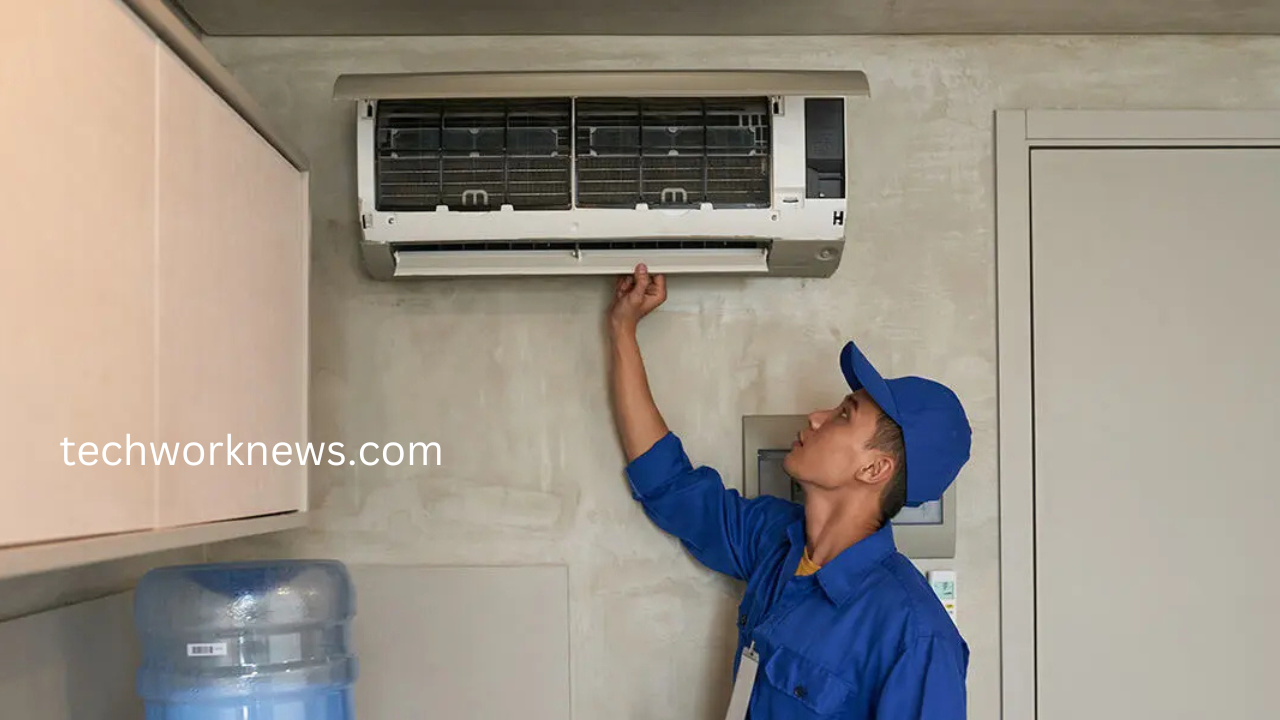breaking AC conditioning unit is one of the most important appliances in your home, especially during the hot summer months. A well-functioning AC ensures a comfortable living environment and protects your home from the heat. breaking AC, like all machines, an air conditioner requires proper maintenance to run efficiently. If neglected, an AC unit can experience breakdowns, resulting in costly repairs and unexpected discomfort. In this article, we will explore essential maintenance tips for preventing a breaking AC, ensuring that it runs smoothly throughout the year.
Why AC Maintenance is Important
Regular maintenance is crucial for extending the lifespan of your air conditioner. An AC that receives routine care is more energy-efficient, cools better, and experiences fewer breakdowns. Neglecting maintenance can lead to various issues, such as reduced airflow, clogged filters, and even system failure. The cost of regular maintenance is far less than the price of major repairs or replacement.
Change or Clean the Air Filters Regularly

One of the most common reasons for an AC to break down is clogged air filters. Over time, filters accumulate dust, dirt, and debris, restricting airflow and causing the unit to work harder. This not only leads to inefficient cooling but also puts additional strain on the motor, which can cause it to burn out.
Tip: Change or clean your AC filters every 1 to 3 months, depending on the usage and type of filter. If you have pets or allergies, more frequent cleaning may be necessary.
Inspect and Clean the Coils
Your air conditioner’s evaporator and condenser coils are essential for heat exchange. The evaporator coil absorbs heat from the air, and the condenser coil releases it outside. Over time, both coils can accumulate dirt, reducing their efficiency. Dirty coils make your AC work harder to cool your home, leading to wear and tear on the system.
Tip: Check both the evaporator and condenser coils regularly. If they’re dirty, clean them with a soft brush or hose them down (with the power turned off). It’s advisable to have this done by a professional every year.
Ensure Proper Refrigerant Levels
Refrigerant is the substance that cools the air in your AC. If your AC has a low refrigerant level, it will struggle to cool your home efficiently. This can lead to overheating, increased energy consumption, and eventual system failure. A low refrigerant level can also indicate a leak, which needs to be addressed immediately.
Tip: If you notice your AC is blowing warm air or not cooling properly, it could be a sign of low refrigerant. Have a professional check and refill the refrigerant levels if necessary.
Check the Thermostat Settings
Sometimes, the issue isn’t with the AC itself but with the thermostat settings. If the thermostat is malfunctioning or improperly calibrated, it may not signal the AC to cool effectively, leading to inefficiency. A broken or poorly calibrated thermostat can also cause your system to overheat or run continuously, placing unnecessary stress on your AC.
Tip: Set the thermostat to a comfortable but energy-efficient temperature. Ensure it’s properly calibrated, and if you use a programmable thermostat, set it to adjust the temperature when you’re away from home to save energy. Consider upgrading to a smart thermostat for added convenience.
Inspect and Clean the Ductwork
Leaky or dirty ductwork can significantly affect your air conditioner’s performance. Gaps or holes in ducts allow cool air to escape, reducing the efficiency of your AC and raising your energy bills. Dust, debris, and mold can also accumulate in ducts, reducing air quality and straining the system.
Tip: Inspect the ducts for any visible gaps or leaks. Seal them with duct tape or a specialized sealant. Consider hiring a professional to clean and sanitize your ducts annually to ensure proper airflow and efficiency.
Check the Drain Line for Clogs
Your AC has a condensate drain line that removes moisture from the air. Over time, this line can become clogged with dirt, algae, and debris, causing water to back up into the unit. This can lead to water damage, mold growth, and even the breakdown of your AC system.
Tip: Clear the condensate drain line by flushing it with a mixture of water and vinegar every few months. This helps prevent blockages and ensures proper water drainage.
Lubricate Moving Parts
The fan and motor in your air conditioning unit are responsible for circulating cool air throughout your home. Over time, the moving parts of these components can experience friction, leading to wear and tear. Regular lubrication helps reduce friction, ensuring smoother operation and reducing the likelihood of a breakdown.
Tip: Lubricate the fan and motor components as recommended by the manufacturer. If you’re unsure, consult a professional HVAC technician for assistance.
Inspect the Insulation
Proper insulation is critical for maintaining the temperature in your home. Without adequate insulation, your air conditioning system has to work harder to cool the air, leading to increased energy use and potential breakdowns.
Tip: Check the insulation around the AC ducts and refrigerant lines. Ensure they’re free of damage and well-insulated. If the insulation is damaged, replace it promptly.
Schedule Professional Maintenance
While you can perform basic maintenance on your own, it’s essential to have your AC professionally serviced at least once a year. A trained HVAC technician can thoroughly inspect your system, identify potential issues, and provide repairs or replacements before they become major problems. Professional maintenance also helps keep your warranty intact.
Tip: Schedule annual HVAC maintenance in the spring, just before the hot weather begins. This ensures that your AC is prepared for the summer heat and that any issues are addressed in advance.
Know When It’s Time to Replace Your AC
Even with proper maintenance, all air conditioners have a lifespan. Typically, an AC unit lasts around 10-15 years. If your system is older and frequently breaking down, it might be more cost-effective to replace it rather than continually paying for repairs.
Tip: If your AC is over 10 years old and requires frequent repairs or is no longer cooling effectively, consider replacing it with a more energy-efficient model to reduce energy costs and avoid future breakdowns.
Conclusion
Preventing a breaking AC involves more than just occasional maintenance. Regularly inspecting, cleaning, and servicing your air conditioning unit can significantly extend its lifespan and improve its performance. By following these essential maintenance tips, you can avoid costly repairs and ensure that your AC provides reliable cooling for years to come.
FAQs
How often should I change the air filter in my AC?
You should change or clean your AC air filter every 1 to 3 months, depending on usage and the type of filter. If you have pets or allergies, it’s recommended to clean or replace the filter more frequently.
Can I clean my AC’s coils myself?
While you can clean the coils yourself with a soft brush or hose, it’s a good idea to hire a professional HVAC technician to perform a more thorough cleaning once a year, especially for the evaporator coil.
What should I do if my AC is blowing warm air?
If your AC is blowing warm air, it could be a sign of a refrigerant leak or malfunctioning thermostat. Check the thermostat settings and consider calling a professional to inspect and recharge the refrigerant if necessary.
How can I improve my AC’s energy efficiency?
Improving your AC’s energy efficiency involves regular maintenance, including cleaning or replacing filters, ensuring proper refrigerant levels, sealing leaks in ducts, and setting the thermostat to an energy-efficient temperature.
When should I replace my air conditioner?
If your air conditioner is over 10 years old, requires frequent repairs, or no longer cools your home effectively, it may be time to replace it with a more energy-efficient model.
You May Also Read: https://techworknews.com/auggie-savage/



